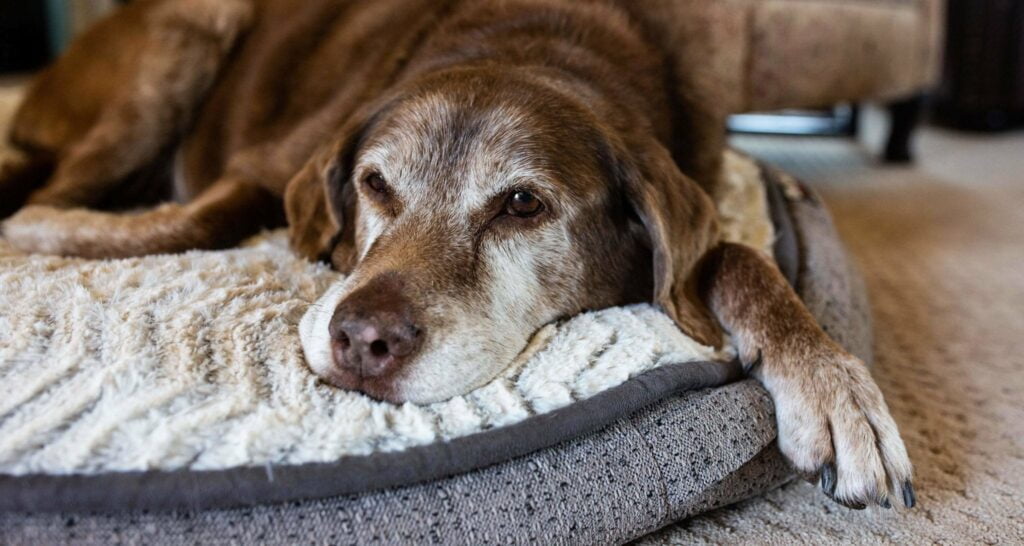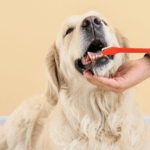Table of Contents
Caring for a senior dog requires special attention and adjustments to ensure their golden years are comfortable and healthy. As dogs age, their needs change, and understanding how to care for a senior dog is crucial for their well-being. This guide provides ten essential tips to help you provide the best care for your elderly canine companion.

1. Regular Veterinary Checkups
Regular veterinary checkups are crucial for senior dogs. As dogs age, they become more susceptible to various health issues. Schedule bi-annual vet visits to monitor your dog’s health and catch any potential problems early. For more on senior dog checkups, visit AKC Senior Dog Care.
2. Appropriate Diet and Nutrition
A balanced diet is essential for senior dogs to maintain a healthy weight and support their overall health. Choose a high-quality dog food formulated for seniors, which often includes ingredients that support joint health and digestion. Consult your veterinarian for specific dietary recommendations. For more on senior dog nutrition, see PetMD Senior Dog Food.
3. Exercise and Mental Stimulation
Regular, moderate exercise helps keep your senior dog physically fit and mentally stimulated. Adjust the intensity and duration of exercise to match your dog’s capabilities. Mental stimulation is equally important, so provide puzzle toys, training sessions, and interactive play. For more on senior dog exercise, visit The Spruce Pets Aging Dog Care Tips.
4. Weight Management
Maintaining a healthy weight is vital for your senior dog’s overall health. Obesity can exacerbate joint issues and lead to other health problems. Monitor your dog’s weight and adjust their diet and exercise routine as needed. For more on weight management, see WebMD Weight Management for Dogs.
5. Dental Care
Dental health is often overlooked but is crucial for senior dogs. Regular brushing and professional dental cleanings can help prevent gum disease, tooth loss, and other dental issues. Use a dog-specific toothbrush and toothpaste for the best results. For more on dental care, visit AVMA Dental Care for Pets.
6. Comfortable Sleeping Arrangements
Senior dogs often suffer from joint pain and arthritis, making a comfortable sleeping area essential. Provide a supportive, orthopedic bed to help alleviate discomfort and improve sleep quality. Ensure the bed is in a quiet, draft-free area. For more on sleeping arrangements, see AKC Best Dog Beds for Seniors.
7. Joint and Mobility Care
As dogs age, they may develop joint and mobility issues. Provide joint supplements and maintain a regular, low-impact exercise routine. Consider using ramps or steps to help your dog access higher areas. Consult your veterinarian for additional joint care recommendations. For more on joint care, visit PetMD Joint Supplements.
8. Monitoring and Managing Health Conditions
Senior dogs are more prone to health conditions such as diabetes, kidney disease, and arthritis. Regularly monitor your dog for any changes in behavior or health and work with your veterinarian to manage these conditions effectively. For more on managing health conditions, see Cornell Senior Dog Health Issues.
9. Grooming and Skin Care
Regular grooming is essential for maintaining your senior dog’s skin and coat health. Brush your dog frequently to remove loose hair and prevent matting. Check for skin issues such as dryness or lumps, and consult your veterinarian if you notice any abnormalities. For more on grooming, visit The Spruce Pets Senior Dog Grooming Tips.
10. Providing Affection and Companionship
Senior dogs thrive on affection and companionship. Spend quality time with your dog, providing plenty of love, attention, and gentle play. This helps strengthen your bond and ensures your dog feels secure and loved. For more on providing companionship, visit Petfinder Senior Dog Care.
Conclusion on How to Care for a Senior Dog
Understanding how to care for a senior dog is essential for ensuring their health and happiness in their later years. By providing regular veterinary checkups, a balanced diet, appropriate exercise, and plenty of love and attention, you can help your senior dog enjoy a comfortable and fulfilling life. For more pet care tips, check out our Pet Care Guide.
FAQs on How to Care for a Senior Dog
How often should I take my senior dog to the vet?
It’s recommended to take your senior dog to the vet at least twice a year for regular checkups and to monitor their health.
What kind of diet is best for a senior dog?
A diet formulated specifically for senior dogs, rich in nutrients that support joint health, digestion, and overall well-being, is best. Consult your veterinarian for personalized recommendations.
How can I help my senior dog with joint pain?
Provide joint supplements, maintain a regular low-impact exercise routine, and consider using ramps or steps to assist with mobility. Consult your veterinarian for additional joint care recommendations.
What are some signs of health issues in senior dogs?
Signs of health issues in senior dogs include changes in behavior, appetite, weight, mobility, and appearance of the skin or coat. Regular veterinary checkups are essential for early detection and management.
How can I keep my senior dog mentally stimulated?
Engage your senior dog with puzzle toys, training sessions, and interactive play to keep their mind active and prevent cognitive decline.
What kind of bed is best for a senior dog?
An orthopedic bed that provides support and comfort for aching joints is ideal for a senior dog. Ensure the bed is placed in a quiet, draft-free area.











